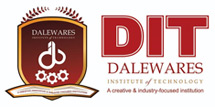Computer Science
Home / Computer Science
The National Diploma (ND) in Computer Science
The National Diploma (ND) programme in Computer Science is aimed at developing competent, creative, innovative, entrepreneurial and ethically-minded persons, capable of creating value in the diverse fields of Computer science.

The National Diploma (ND) in Banking and Finance
GOAL AND OBJECTIVES OF THE PROGRAMME
GOAL: The National Diploma programme is designed to produce diplomates capable of applying computer in various areas of computing.
Objectives: Diplomates of this programme should be able to:-
- Operate Computer systems
- Use various Computer packages
- Maintain hardware Solve simple hardware problems
- Use various programming languages:
- Visual BASIC
- JAVA
- C Programming
- Unified Modelling Language (UML)
- Hyper Text Mark-up Language vi.Use Internet vii. Set up Network
- Set up and manage an enterprise
ENTRY REQUIREMENTS
The entry requirements into National Diploma Computer Science programme are as follows:-
- Five credit level passes in GCE “O” level, Senior Secondary School Certificate (SSCE), NECO and NABTEB at not more than two sittings.
The five subjects must include:
I. English Language, Mathematics, Physics and two other subjects chosen from the following:
II. Economics, Geography,
III. Further Mathematics, Physics, Chemistry,
IV. Biology/Agricultural Science.
- A Pass in Physics is compulsory for
- Computer Science.
- And Relevant NTC/NBC & NVC Trades
Plus JAMB Examination as resolved by National Policy on Education.
- A pass in Computer Foundation Examination (CFE) of Computer Professionals Registration Council of Nigeria (CPN). The student must be prima fascia qualified as in (a) above.
CURRICULUM STRUCTURE
The curriculum of the ND programme consists of four main components. These are:-
i. General studies/Education
ii. Foundation courses
iii. Professional courses
iv. Supervised Industrial work experience scheme (SIWES).
The General Education component shall include courses in
English Language
Communication
Citizenship Education Entrepreneurship
The General Education component shall account for not more than 15% of total contact hours for the programme.
Foundation Courses include courses in Mathematics, and Statistics etc. The number of hours will vary with the programmes and may account for about 10 –15% of the total contact hours.
Professional Courses are courses, which give the student the theory and practical skills he needs to practice his field of calling at the technical/technologists level.
Student Industrial Work Experience Scheme (SIWES) shall be taken during the long vacation following the end of the second semester of the first year. See details of SIWES at paragraph 8.0.
Curriculum structure
The structure of the programme courses of four semesters of classroom, laboratory and workshop activities in the college – and a period (3-4 months) of supervised industrial work experience scheme (SIWES). Each semester shall have 17 weeks duration made up as follows:-
15 contact weeks of teaching, i.e. recitation, practical exercises, quizzes, test, etc; and
2 weeks for examinations and registration. SIWES shall take place at the end of the second semester of the first year.
ACCREDITATION
Programme offered at the ND level shall be accredited by the NBTE before the diplomats can be awarded National Diploma certificate. Details about the process of accrediting a programme for the award of the ND is available from the Executive Secretary, National Board for Technical Education, P. M. B. 2239, Kaduna, Nigeria.
CONDITIONS FOR THE AWARD OF THE NATIONAL DIPLOMA
Institution offering accredited programme will award the National Diploma programme after passing the prescribed course work, examinations, diploma project and the supervised industrial work experience. Such candidates should have completed a minimum of between 72 and 80 semester credit units depending on the programme.
UNIFIED GRADING SYSTEM
The unified grading system to be applied in scoring all course work, examinations, project, etc is as stated on table below:
Marked Range | Letter Grade | WEIGHTING |
75 and above 70 – 74 65 – 69 60- 64 55 – 59 50-54 45 – 49 40-44 Below 40% | A AB B BC C CD D E F | 4.0 3.5 3.25 3.0 2.75 2.50 2.25 2.0 0.0 0 |
CLASSIFICATION OF DIPLOMAS
The final Cumulative Grade Point Average (CGPA) shall be determined (calculated) and applied to the classification of the National Diploma as follows:
Class (Level of Pass) | CGPA |
Distinction Upper Credit Lower Credit Pass Fail | 3.50 and Above 3.00 – 3.49 2.50 – 2.99 2.00 – 2.49 Below 2.00 |
